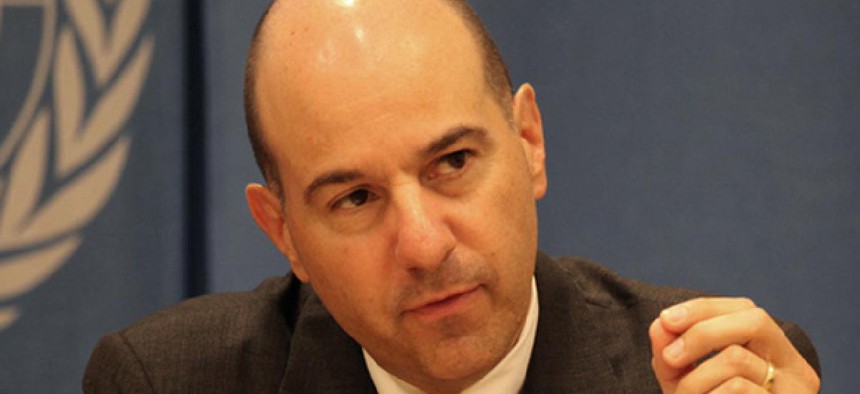Patent chief: Laws are needed to support IP treaty commitments

Director of the U.S. Patent and Trademark Office David Kappos US Mission Geneva file photo
The Patent Law Treaty requires Congress to act before they can take effect.
David Kappos, director of the U.S. Patent and Trademark Office, told the Senate Judiciary Committee on Wednesday that implementing legislation was necessary for American companies to reap the benefits of two international treaties that were ratified in 2007.
The Patent Law Treaty, which streamlines the patent application and protection process across signatory countries, and the Hague agreement, which covers industrial design patents, require Congress to act before they can take effect.
Judiciary Committee Chairman Patrick Leahy, D-Vt., didn’t offer a timetable for the introduction of implementing legislation, but he did get Kappos to recite a litany of economic benefits for American companies once the treaties take effect.
In his progress report on implementation of the America Invents Act, Kappos said that the legislation, in addition to reducing the backlog of unprocessed patent applications, has aided the U.S. in its efforts to promote the idea of a grace period -- the time between the disclosure of an invention and the application for a patent -- to countries in Asia and Europe.
The only drama in an otherwise friendly hearing involved Kappos’s trips abroad. Sen. Chuck Grassley of Iowa, Judiciary's ranking Republican, reiterated a request made in September 2011 for documentation of Patent Office spending for foreign trips, including one to Tokyo that Grassley said cost $180,000.
Kappos offered assurances that he and the few staffers who accompanied him on international trips flew coach, even on long flights, and said he would look at the request. But he didn’t commit to supplying the documentation.
A spate of high-profile patent lawsuits, including two by Apple against mobile handset competitors Motorola Mobility and Samsung, loomed in the background of the questioning. Kappos said that pledges to license patents under the fair, reasonable, and nondiscriminatory terms used in standards-setting “need to be kept.”
He added that there are some “tremendously negative side effects” that can occur if companies that offered licenses under these terms later obtain exclusion orders and injunctions to prevent competitors from bringing products to market. But he said that such commitments don’t stand for “licensing under any terms or conditions.”
Kappos’s remarks were somewhat more measured than those of the European Union’s top antitrust regulator, Joaquín Almunia, who last week intimated that consumers were being “held hostage” to ongoing patent litigation.






